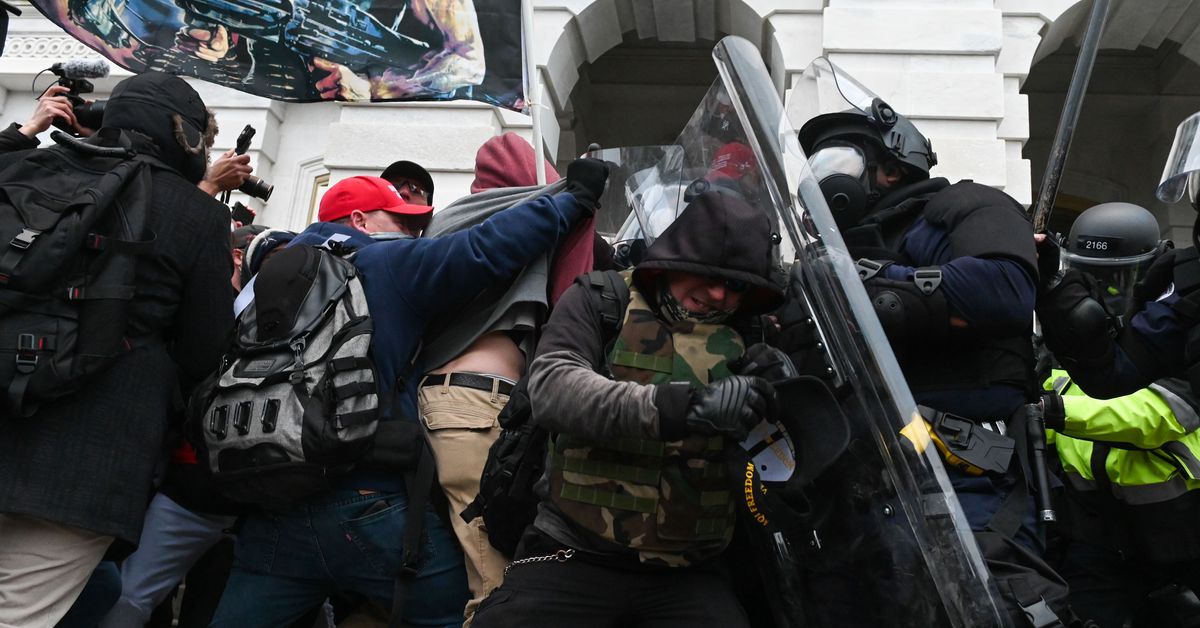There are many things right-wing extremists like about Telegram, the social media and messaging app that is currently at the top of app stores. Its content moderation is loose and dispersed. It is a well-built application with many features for mass communication, as well as encrypted chats and file sharing. And Telegram has more users than ever.
After the Capitol uprising, Telegram announced that it has exceeded 500 million active users globally. It added 25 million new users in just 72 hours. Only 2% of the user base of the Dubai-based app is in the US, but it is becoming more popular with Americans. Telegram downloads in the U.S. in the first weeks of this year were more than 700 percent higher than in the same period in 2020, according to data from application measurement company Sensor Tower.
The use of alternative messaging apps has skyrocketed in recent weeks for a variety of reasons, including the consequences of a WhatsApp privacy update and a crackdown on other platforms after the Capitol riot. In the United States, Signal, known for its end-to-end encrypted messages, had the same number of exclusive installations in the first 18 days of 2021 and throughout the year 2020.
Currently, Telegram is the most downloaded application from the Google Play Store, having removed Signal from the first place in the United States. The specific combination of Telegram’s features, however, makes it especially popular among American right-wing extremists, who joined the platform en masse after being expelled from Twitter, Facebook and Parler. The latter is another favorite of the extremists and was recently launched on the Internet, although it is now back in a very limited form.
Telegram has three main components. The channels, public and private, are mostly one-sided broadcasts that an unlimited number of people can follow.
Telegram also has public and private groups where up to 200,000 people can communicate. Signal groups, for comparison, peak at 1,000; WhatsApp in 256. After its role in amplifying violence in India and Myanmar, WhatsApp, owned by Facebook, limited the groups’ ability to forward messages to other groups to prevent the spread of misinformation. Larger groups allow fake news – and calls for violence – to spread more quickly.
The third component of Telegram is called secret chat, where people can have individual encrypted conversations from end to end, meaning that hackers or the police would not be able to see the content of these messages.
Megan Squire, professor of computer science at Elon University and a fellow at the Southern Poverty Law Center who researches online extremism, says that together, these social media and messaging resources are “convenient” for online extremists.
“They can do radicalization and recruitment on a platform,” Squire told Recode. These features also make it popular worldwide among activists. The app has been used by protest movements (Hong Kong) and extremists (Islamic State).
Last week, marking a rare departure from its much more direct approach towards American extremists, Telegram blocked dozens of public channels for inciting violence, saying they violated the terms of service. This included a channel that, in the days before the inauguration, showed how to make and hide homemade weapons and bombs. This week, the app’s founder, Russian technology entrepreneur Pavel Durov, said that after seeing an increase in reporting in the United States, he withdrew “hundreds” of violence calls on public channels.
Numerous public channels and groups containing hate speech, conspiracy theories and racist memes remain. There are currently two channels with Proud Boys in the name, each with around 40,000 followers. They have accumulated a lot of that in the past few weeks.
On Sunday, the nonprofit group Coalition for a Safer Web filed a lawsuit against Apple asking to uproot Telegram from its App Store – as Apple did with Parler – citing its failure to remove violent and extremist content from the app.
A Telegram spokesman did not respond to requests for comment.
There are reasons to believe that Telegram does not take content moderation as seriously as other platforms. Squire said he reported a manifesto on the death of Muslims to Telegram almost two years ago, and it is still in effect. Last week, a Proud Boy posted Squire’s address on the website. She reported this, but doxing is not one of the five categories of inappropriate content that you can report, and again, no one responded to it. Unlike Facebook or Twitter, there is no way to track a report on Telegram and find out what happened to it.
But relaxed moderation in the social media messaging app is also one of several reasons for its popularity among extremists. Telegram, unlike other platforms, also allows for the storage of files, which, according to Squire, is attractive to extremists who want to share videos and radical manifestos. Notably, Telegram’s brief terms of service prohibit the promotion of violence on public channels, but do not mention anything about the promotion of violence on private channels or groups.
Telegram is also popular with extremists precisely for the reasons that it is popular with other people: the app is very good. It is easy to use and is often not offline. Squire said it is much better than other apps popular with right-wing extremists like Gab and Parler. “It is not made with gum and duct tape,” she said.
As such, many people use it. And communication platforms rely on network effects, which means that they become more useful the more people use them.
And with more and more extremists turning to Telegram after crackdowns on other platforms, the app’s loose moderation has the potential to create new echo chambers to further radicalize these people. How much Telegram moderates your site will decide what kind of platform it will become.
